Christ the Lord: Out of Egypt Read online
Page 2
"Do you yourself know what that means!" shot back the Teacher. "I'd like to hear you explain it. You know what the scribe in your synagogue taught you what it means, that's all you know and if you learned enough Greek here to shout in my face, you're the better for it. What do any of you know, you hardheaded Galilean Jews? Coming to Egypt for refuge, and leaving as hardheaded as you came."
My mother was anxious.
The Teacher looked at me.
"And to take this child, this brilliant child—." And what would you have us do?" asked Alphaeus.
"Oh, no, don't ask such a thing!" my mother whispered. It was so unusual for her to speak up.
Joseph glanced at her, and then looked at the Teacher. The Teacher went on.
"It's always the same," said the Teacher with a great drawn-out sigh. "In times of trouble, you come down to Egypt, yes, always to Egypt, she receives the dregs of Palestine. ..."
"The dregs!" Cleopas said. "You call our forefathers the dregs?"
"They didn't speak Greek either," said Alphaeus.
Cleopas laughed. "And the Lord on Sinai didn't speak Greek," he said.
Uncle Simon said quietly, "And the High Priest now in Jerusalem, when he lays his hands on the goat, he probably forgets to tell all our sins in Greek."
They were all laughing. The older boys laughed. Aunt Mary laughed. But my mother was still crying. I had to stay by her side.
Even Joseph smiled.
The Teacher was angry. He went on:
"... if there's a famine, come down to Egypt, if there's no work, come down to Egypt, if there's a murderous rampage on the part of Herod, come down to Egypt, as if King Herod took the slightest care as to the fate of a handful of Galilean Jews such as you! A murderous rampage! As if—."
"Stop," Joseph said.
The Teacher stopped.
All the men stared at the Teacher. No one said a word. No one moved.
What had happened? What had the Teacher said? Murderous rampage. What were these words?
Even James had the same look on his face as the men.
"Oh, you think people don't talk about these things?" asked the Teacher. "As if I believe travelers' tales."
They said nothing.
Then in a soft voice Joseph spoke.
"The Lord made patience for this!" he said. "But I don't have it. We go home because it is our home," he went on, staring at the Teacher, "and it is the Lord's land. And because Herod is dead."
The Teacher was taken aback. Everyone else was surprised. Even my mother was surprised, and I could see the women looking at each other.
Now, we little ones all knew Herod was the King of the Holy Land, and we knew he was a bad man. Only lately had he done a terrible thing, a desecrating of the Temple, or so we'd heard as all the men talked about it but we didn't know much more than that.
The Teacher was frowning at Joseph.
"Joseph, it's not wise to say such a thing," the Teacher said. "You can't speak of the King in this way."
"He is dead," said Joseph. "The news will come by the Roman post in two days."
The Teacher was cold. All the others were quiet, eyes on Joseph.
"How do you know?" asked the Teacher.
No answer.
"It will take a little while to prepare for our journey," Joseph said. "Our boys will have to work with us until then. No more school for them now, I fear."
"And what will Philo think?" asked the Teacher, "when he hears that you're taking Jesus?"
What has Philo to do with my son," said my mother. Her voice shocked everyone.
Another silence followed.
I knew this was not an easy moment.
A while back, the Teacher had taken me to Philo, a rich man and a scholar, to show me to him as a fine pupil, and Philo had taken a great liking to me, and even taken me to the Great Synagogue which was as large and beautiful as the pagan temples of the city, where the rich Jews gathered on the Sabbath, a place to which my family never went. We went to the little House of Prayer in our own street.
It was after those visits that Philo had given work to us from his house, to make wooden doors and benches and book stands for his new library, and soon his friends had given our family similar jobs which meant good wages as well.
Philo had treated me as a guest when I was brought to him.
And even today when we had put in the doors on their pivots, and picked up the painted benches from the men who did the painting and taken them to Philo, I had seen him and he had taken time with us to tell Joseph kind things about me.
But to talk of this now, that Philo had taken a liking to me? It was not right, and I felt the men were uneasy as they looked at the Teacher. They had worked hard for Philo and for Philo's friends.
The Teacher did not answer my mother.
Finally Joseph said: "Philo should be surprised that my son goes home with me to Nazareth?"
"Nazareth?" said the Teacher coldly. "What is Nazareth? I've never heard of such a place. You came here from Bethlehem. Your terrible stories, why you—. Philo thinks Jesus is the most promising scholar he's ever seen. Philo would educate your son if you would allow. That's what Philo has to do
with your son, that's what Philo's said. Philo would see to it—.
"Philo has nothing to do with our son," said my mother, again shocking all that she spoke up, her hands clasping my shoulders tightly.
No more the rich house with its marble floors. No more the library of parchment scrolls. Smell of ink. Greek is the language of the Empire. See this? This is a map of the Empire. Hold the edge for me there. Look. All this Rome rules. There is Rome, here is Alexandria, here is Jerusalem. See, there Antioch, Damascus, Corinth, Ephesus, all great cities, and in all these cities the Jews live and speak Greek and have Torah in Greek. But there is no city outside of Rome as great as Alexandria where we are now.
I shook off the memory. James was staring at me. The Teacher was talking to me.
". . . but you liked Philo, didn't you? You liked answering his questions. You liked his library."
"He stays with us," said Joseph calmly. "He will not go to Philo."
The Teacher continued to stare at me. This was not right.
"Jesus, speak up!" he said. "You want to be educated by Philo, don't you?"
"My lord, I do as my father and mother want," I said. I shrugged. What was I to do?
The Teacher turned and threw up his hands.
"When will you go?" he asked.
"As soon as we can," said Joseph. "We have work to finish."
'I want to send word to Philo that Jesus is leaving," said the Teacher, and with that he turned to go. But Joseph stopped him.
"We've done well in Egypt," he said. He took money out
of his purse. He pressed it into the hand of the Teacher. "I thank you for teaching our children."
"Yes, yes, and you take them back to—where was it? Joseph, there are more Jews living in Alexandria than there are in Jerusalem."
"There may be, Teacher," said Cleopas, "but the Lord dwells in the Temple in Jerusalem, and his land is the Holy Land."
All the men laughed to approve and the women too and so did I and Little Salome and Judas, Joses and Symeon.
The Teacher couldn't say anything to this, but only nodded.
"And if we finish our work quickly," Joseph said with a sigh, "we can reach Jerusalem in time for Passover."
We all gave cries of delight when we heard it. Jerusalem. Passover. We were all excited. Salome clapped her hands. Even Uncle Cleopas was smiling.
The Teacher bowed his head. He put two fingers to his lips. Then he gave us a blessing:
"May the Lord go with you on your journey. May you reach your home in peace."
The Teacher left.
At once all the family was speaking our native tongue for the first time in the whole afternoon.
My mother looked at me, ready to nurse my cuts and bruises. "Why, they're gone," she whispered. "You're healed."
&n
bsp; "It wasn't much," I said. I was so happy we were going home.
2
THAT NIGHT, AFTER SUPPER, while the men were dozing on their mats in the courtyard, Philo came.
He sat down to a cup of wine with Joseph, just as if he wasn't wearing white linen and wouldn't be soiled, and crossed his legs like the other men. I sat beside Joseph, hoping to hear all that was said, but then my mother took me inside.
She listened behind the curtain and she let me listen. Aunt Salome and Aunt Esther were there too.
Philo wanted to keep me and instruct me and send me back to Joseph an educated young man. Joseph listened to all this in silence but said no. Joseph was my father and Joseph must take me back to Nazareth. He knew that this was what he had to do. He thanked Philo, and offered him wine again, and said that he would see to it that I was educated as a Jew.
"You forget, my lord," he said in his gentle manner, "that on Sabbath all Jews are philosophers and scholars the world wide. It's no different in the town of Nazareth, believe me."
Philo was pleased at that and nodded and smiled.
'He'll go to school in the mornings, as all the boys do," Joseph went on. "And we will have our disputes over the Law and the Prophets. And we'll go up to Jerusalem and there at the Feasts, maybe he'll listen to the teachers in the Temple. I have many a time."
When Philo offered a gift for my education, a little purse that he wanted to put into Joseph's hand, Joseph said no.
Philo took his ease awhile, and he talked of many things with Joseph, of the city and of the jobs our men had done, and of the Empire, and then he asked Joseph how Joseph was so certain that King Herod was dead.
"The news will reach here soon with the Roman post," Joseph said. "As for me, I knew it in a dream, my lord. And it means for us we will go home."
My uncles who had sat quietly all this time in the dark came in with their agreement, and how much they had despised the King.
The strange words of the Teacher, his talk of murderous rampages, were in my mind, but the men never spoke of that, and finally it came time for Philo to go.
He didn't even dust off his fine linen as he stood up, and he thanked Joseph over and over for the good wine, and wished us well.
I ran out. I walked a way with Philo up the street. He had two slaves with him who carried torches and I'd never seen the Street of the Carpenters so brightly lighted at this hour, and I knew people were watching from the courtyards where they took their ease in the breeze from the sea that came with the dark.
Philo told me to always remember Egypt and the map of the Empire which he had shown me.
"But why don't all the Jews go back to Israel?" I asked him. "If we are Jews, shouldn't we live in the land the Lord gave to us? I don't understand."
He thought for a moment. Then he said, "A Jew can live anywhere and be a Jew. We have the Torah, the Prophets, the Tradition. We live as Jews wherever we are. And don't we take the Word of the One True Lord wherever we go? Don't we establish his Word among the pagans wherever we live? I live here because my father lived here and his father before him. You go home because your father wants you to go home."
My father.
A chill passed over me. Joseph was not my father. I had always known this, but it wasn't something to be said to anyone, ever. And I didn't say anything about it now.
I nodded.
"Remember me," Philo said.
I kissed his hands, and he bent down and kissed me on both cheeks.
He was going home to a fine supper perhaps, in his house of marble floors and lamps everywhere, and rich curtains, and the upper rooms open to the sea.
He turned back once to wave to me and then he and his servants with their torches were gone.
I felt sad for a moment, just a moment, enough never to forget it, this stabbing sadness. But I was too excited to be returning to the Holy Land.
And I hurried back home.
In the darkness, I came up quietly on the courtyard, and I heard my mother crying. She sat next to Joseph.
But I don't know why we can't settle in Bethlehem," she was saying. "It seems we were meant to return there."
Bethlehem, where I was born.
'Never," said Joseph. "We can't even consider such a thing." He was kind as always with her. "How could you think this, that we could ever go back to Bethlehem?"
"But I've been hoping all this time," my mother pressed. "It's been seven years, and people forget, if they ever understood. ..."
My uncle Cleopas who lay flat on his back with his knees crooked was laughing softly, the way he laughed at so many things. My uncle Alphaeus said nothing. He appeared to be looking up at the stars. I could see James in the doorway watching, and listening too perhaps.
"Think of all the signs," said my mother. "Think of the night when the men from the East came. Why, that alone—."
"That's just it," said Joseph who sat beside her. "Do you think anybody there has forgotten that? Do you think they've forgotten anything? We can never go there."
Cleopas laughed again.
Joseph paid no mind to Cleopas and neither did my mother. Joseph put his arm around my mother.
"They'll remember the star," said Joseph, "the shepherds coming in from the hills. They'll remember the men from the East. Above all, they'll remember the night that—."
"Don't say it, please," said my mother. She put her hands to her ears. "Please don't say those words."
"Don't you see, we must take him and go to Nazareth. We have no choice. Besides . . ."
"What star? What men from the East?" I asked. I couldn't hold back anymore. "What happened?"
Again, my uncle Cleopas laughed under his breath.
My mother looked up at me. She hadn't known I was there. "You mustn't worry about it," she said.
"But what happened in Bethlehem?" I asked.
Joseph was looking at me.
"Our house is in Nazareth," said my mother to me. Her voice was stronger. It was a voice for me. "You have more cousins than you can count in Nazareth. Old Sarah's waiting for us, and Old Justus. These are our kindred in common. We're returning to our house." She stood up and beckoned for me to come.
"Yes," said Joseph. "We'll leave as soon as we can. It will take us a few days, but we'll be in time for Passover in Jerusalem and then go on home."
My mother took me by the hand and started to lead me inside.
"But who were the men from the East, Mamma?" I asked. "Can't you tell me?"
My uncle would not stop his soft laughing.
Even in the dark, I could see the strange expression on Joseph's face.
"Some night, I'll tell you all of it," said my mother. Her tears were gone. She was strong for me as always, not the child she was with Joseph. "You mustn't ask me these things now. Not now. I'll tell when the time comes."
"This is true," said Joseph. "I don't want you to ask, do you understand?"
They were gentle, but these were clear and strange words. All the words they'd spoken were strange.
I should have let them go on talking. I would have learned more. And I knew it was a great secret, this that they talked about. How could it not be? And as for me hearing it, they knew they'd made a mistake.
I didn't want to sleep. I lay on my blanket trying to sleep, but sleep didn't come and I didn't want it. I never wanted it. But now my thoughts were racing. We were going home, and I had so much to think about because so much had happened, and now they were saying these strange things.
And what had happened today? What had happened
with Eleazer and what had happened with him, that, and the memory of the sparrows insofar as I could remember it— these were like bright shapes in my mind for which I didn't have words. I'd never felt anything before like the power that had come out of me just before Eleazer fell dead in the dust, or the power that had come out of me just before he'd risen from the mat. Son of David, Son of David, Son of David. . .
Little by little everyone came in to sleep. The
women were in their corner, and I had Little Justus snuggled up to me, Simon's youngest son. Little Salome was singing softly to Baby Esther who was, by some miracle, quiet.
Cleopas was coughing, talking to himself but saying nothing, then sleeping again.
I felt a hand on mine. I opened my eyes. It was James next to me, James, my elder brother.

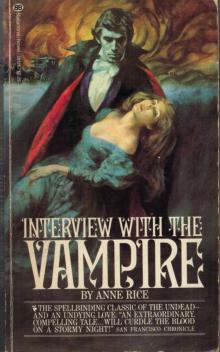 Interview with the Vampire
Interview with the Vampire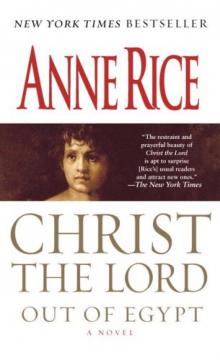 Christ the Lord: Out of Egypt
Christ the Lord: Out of Egypt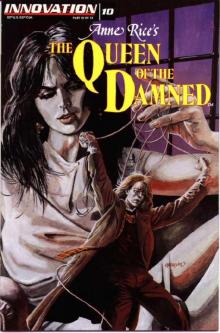 The Queen Of The Damned
The Queen Of The Damned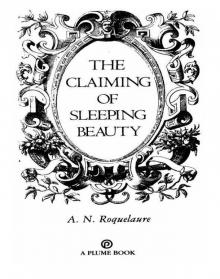 The Claiming of Sleeping Beauty
The Claiming of Sleeping Beauty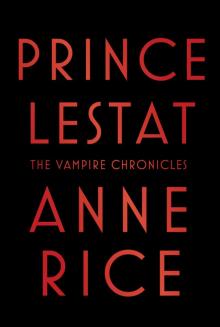 Prince Lestat
Prince Lestat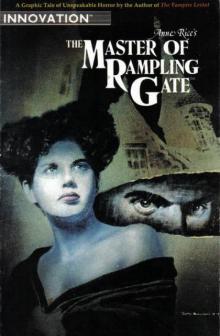 The Master of Rampling Gate
The Master of Rampling Gate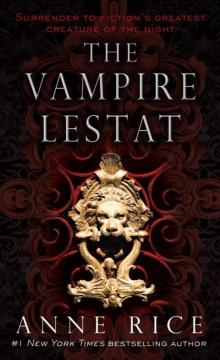 The Vampire Lestat
The Vampire Lestat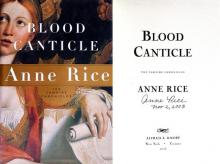 Blood Canticle
Blood Canticle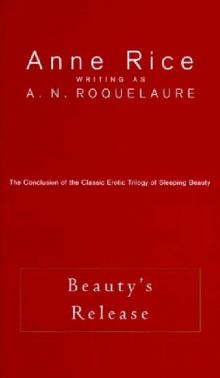 Beauty's Release
Beauty's Release Pandora
Pandora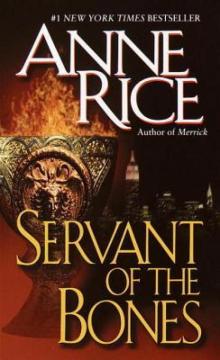 Servant of the Bones
Servant of the Bones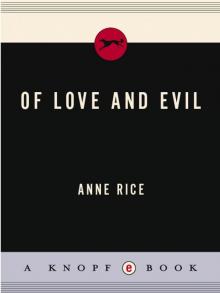 Of Love and Evil
Of Love and Evil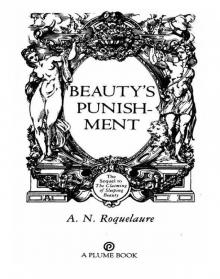 Beauty's Punishment
Beauty's Punishment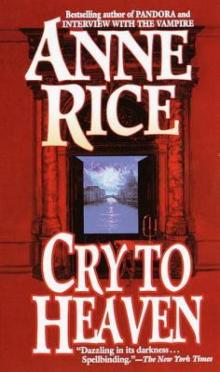 Cry to Heaven
Cry to Heaven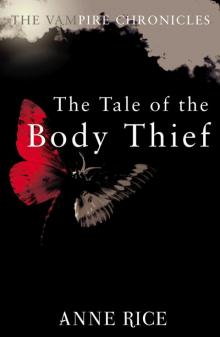 The Tale of the Body Thief
The Tale of the Body Thief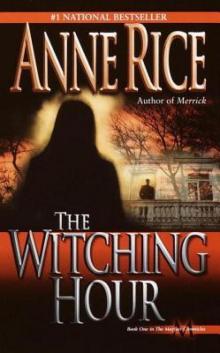 The Witching Hour
The Witching Hour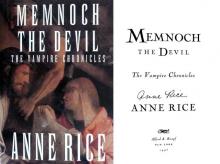 Memnoch the Devil
Memnoch the Devil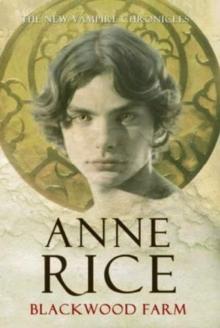 Blackwood Farm
Blackwood Farm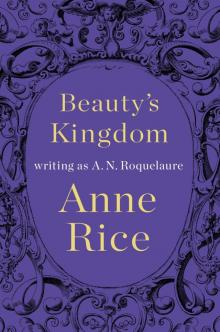 Beauty's Kingdom
Beauty's Kingdom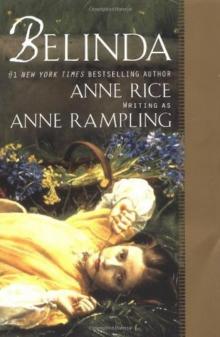 Belinda
Belinda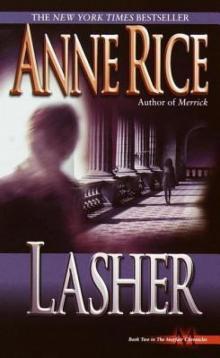 Lasher
Lasher Vittorio, the Vampire
Vittorio, the Vampire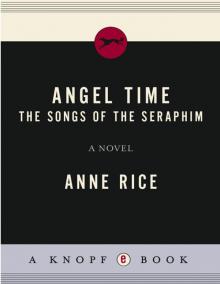 Angel Time
Angel Time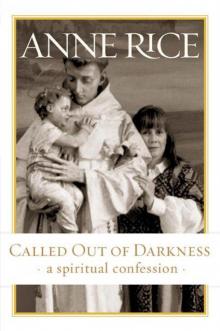 Called Out of Darkness: A Spiritual Confession
Called Out of Darkness: A Spiritual Confession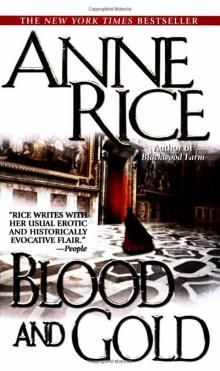 Blood And Gold
Blood And Gold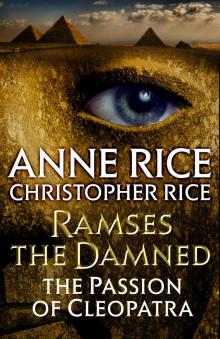 The Passion of Cleopatra
The Passion of Cleopatra Taltos
Taltos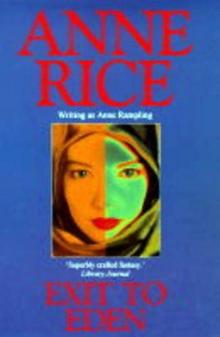 Exit to Eden
Exit to Eden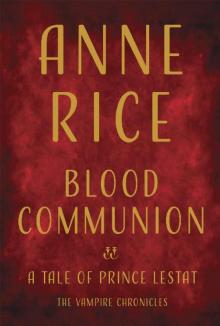 Blood Communion (The Vampire Chronicles #13)
Blood Communion (The Vampire Chronicles #13) The Wolf Gift
The Wolf Gift The Wolves of Midwinter
The Wolves of Midwinter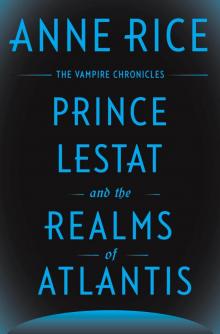 Prince Lestat and the Realms of Atlantis
Prince Lestat and the Realms of Atlantis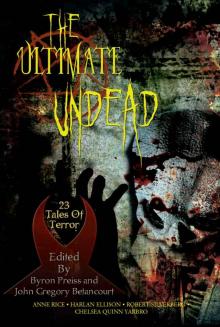 The Ultimate Undead
The Ultimate Undead The Vampire Lestat tvc-2
The Vampire Lestat tvc-2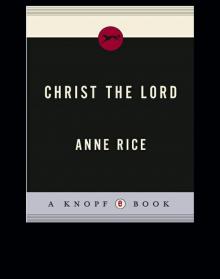 The Road to Cana
The Road to Cana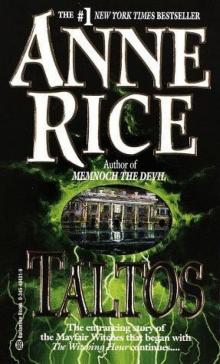 Taltos lotmw-3
Taltos lotmw-3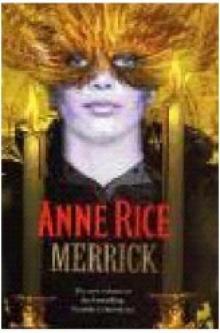 Merrick tvc-7
Merrick tvc-7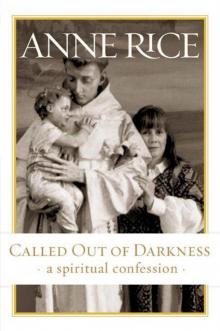 Called Out of Darkness
Called Out of Darkness Pandora - New Vampires 01
Pandora - New Vampires 01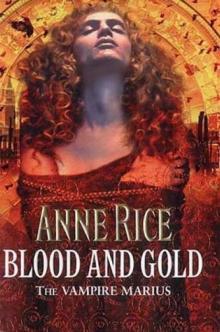 Bllod and Gold
Bllod and Gold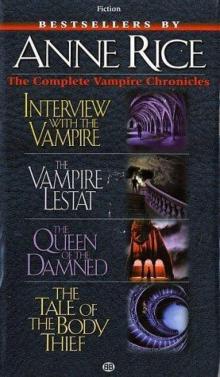 The Queen Of the Damned: Vampire Chronicles
The Queen Of the Damned: Vampire Chronicles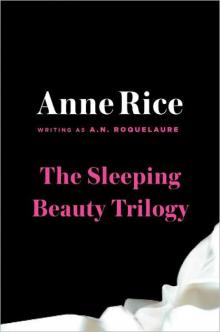 The Sleeping Beauty Trilogy
The Sleeping Beauty Trilogy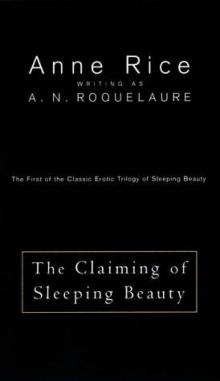 The Claiming of Sleeping Beauty b-1
The Claiming of Sleeping Beauty b-1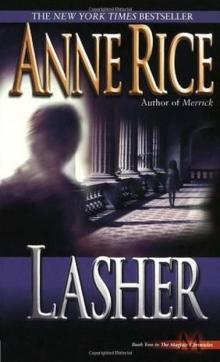 Lasher lotmw-2
Lasher lotmw-2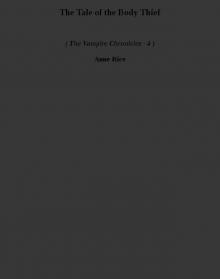 The Tale of the Body Thief tvc-4
The Tale of the Body Thief tvc-4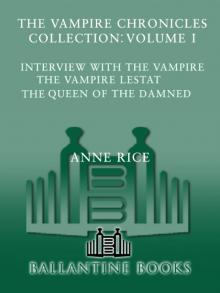 The Vampire Chronicles Collection
The Vampire Chronicles Collection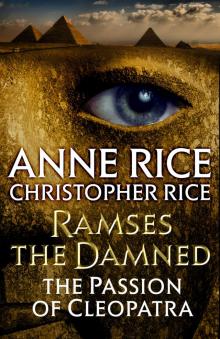 Ramses the Damned
Ramses the Damned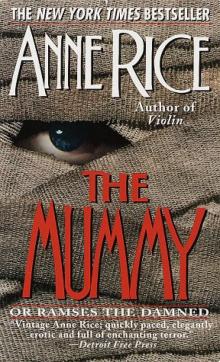 The Mummy - or Ramses the Damned
The Mummy - or Ramses the Damned Vittorio, The Vampire - New Vampires 02
Vittorio, The Vampire - New Vampires 02 The Vampire Armand tvc-6
The Vampire Armand tvc-6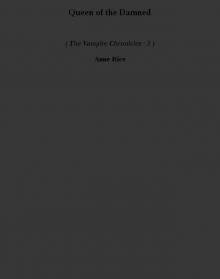 Queen of the Damned tvc-3
Queen of the Damned tvc-3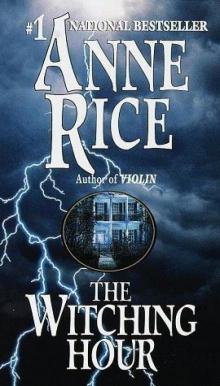 The witching hour lotmw-1
The witching hour lotmw-1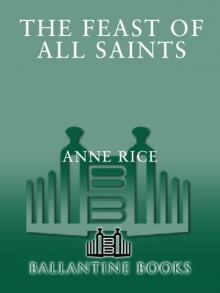 Feast of All Saints
Feast of All Saints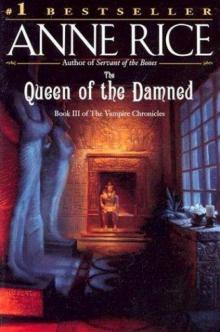 Queen of the Damned
Queen of the Damned The Wolves of Midwinter twgc-2
The Wolves of Midwinter twgc-2 The Mummy
The Mummy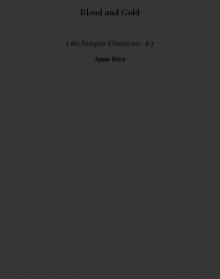 Blood and Gold tvc-8
Blood and Gold tvc-8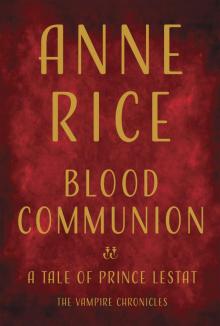 Blood Communion
Blood Communion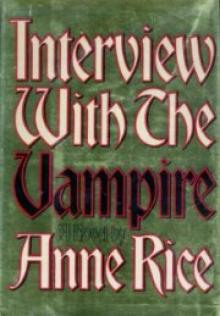 Interview with the Vampire tvc-1
Interview with the Vampire tvc-1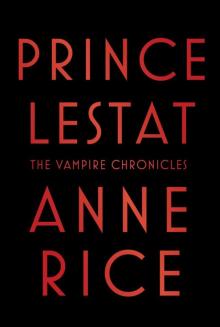 Prince Lestat: The Vampire Chronicles
Prince Lestat: The Vampire Chronicles